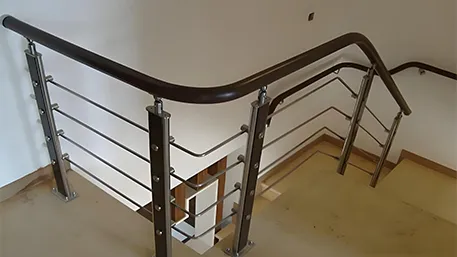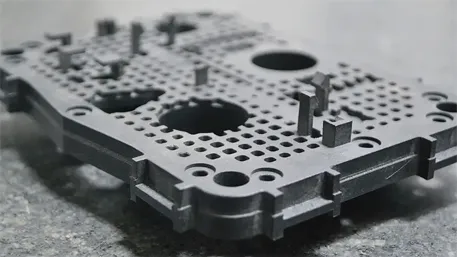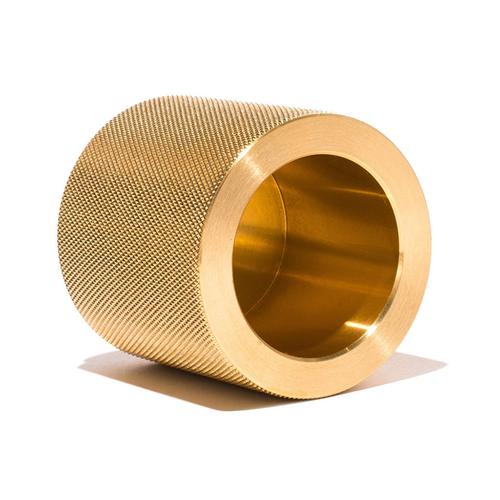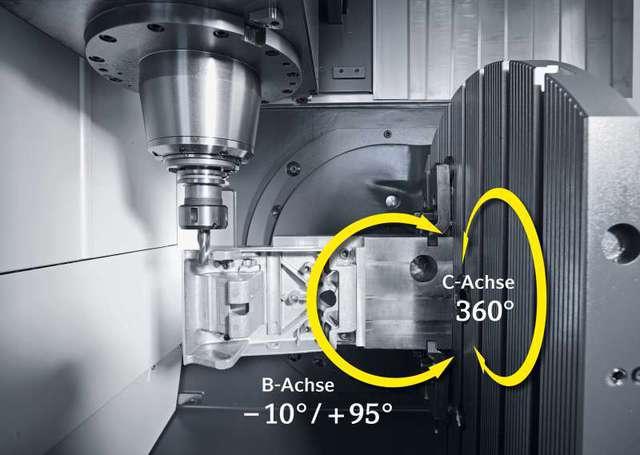In fields such as electronic devices and mechanical instruments, the enclosure is not only the “face” of the product but also plays a decisive role in its protection, heat dissipation, and durability. With the continuous advancement of industrial technology, CNC (Computer Numerical Control) machining technology, with its unparalleled precision manufacturing capabilities and high degree of customization advantages, has become the core technical support for creating high – performance aluminum alloy enclosures. This article will systematically analyze the technical logic and practical value of custom CNC aluminum alloy enclosures from dimensions such as technical advantages, material engineering, processing technology, quality control, and industry applications.
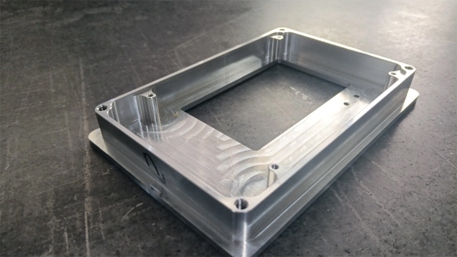
I. Core Advantages of CNC Technology in Aluminum Alloy Enclosure Customization
- Micron – level Precision Assurance
The positioning accuracy of CNC machine tools can reach ±0.01mm, the repeat positioning accuracy is ±0.02mm, and the surface roughness Ra≤0.8μm. When processing the aluminum alloy enclosures of precision electronic devices, the position tolerance of the mounting holes can be controlled within ±0.01mm, ensuring the precise installation of internal components and effectively reducing malfunctions caused by assembly errors. - Full – dimensional Machining Ability for Complex Structures
Five – axis CNC equipment can complete irregular curved surfaces, thin – wall structures (wall thickness ≤ 1mm), and internal hollow designs that are difficult to achieve with traditional processes. For example, when designing an instrument enclosure with a unique shape, five – axis milling can form complex curve contours in one – step, avoiding error accumulation caused by multi – process machining and greatly improving production efficiency and product quality. - High Compatibility of Materials and Processes
CNC technology is perfectly compatible with various aluminum alloy materials such as 6061 and 7075. For the characteristics of 6061 aluminum alloy, such as low density and high strength, high – speed cutting (HSC) technology can be adopted. The rotational speed can be increased to 15000r/min, and the feed rate can be set to 2000mm/min. While improving processing efficiency, it can effectively reduce cutting heat deformation and ensure the dimensional stability of the enclosure.
II. Material Engineering and Selection Strategies for Custom Aluminum Alloy Enclosures
- Balancing Lightweight and High Strength
- 6061 aluminum alloy: With a density of 2.7g/cm³ and a tensile strength of ≥290MPa, it has good processing performance and corrosion resistance and is widely used in fields such as consumer electronics and automotive interiors, which have certain requirements for lightweight and strength.
- 7075 aluminum alloy: With a density of 2.8g/cm³ and a tensile strength of ≥572MPa, it has higher strength and hardness than 6061 aluminum alloy and is suitable for scenarios with strict performance requirements, such as aerospace and high – end mechanical equipment.
- Special Function Requirements
- Heat dissipation performance: 6063 aluminum alloy has excellent thermal conductivity and is often used for the enclosures of electronic devices with high heat dissipation requirements, such as computer CPU radiator enclosures, which can quickly conduct internal heat out to ensure the stable operation of the device.
- Electromagnetic shielding: By adding specific elements to aluminum alloy, it can have certain electromagnetic shielding performance, meeting the electromagnetic compatibility requirements of electronic devices and preventing signal interference.
- Optimization of Cost and Performance
When mass – producing products that are sensitive to cost, the relatively low – priced 6061 aluminum alloy can be selected. By optimizing the CNC processing technology, the production cost can be reduced while ensuring product performance. For high – end customized products, 7075 aluminum alloy can not only improve product performance but also highlight the high – quality of the product.
III. Analysis and Innovation of CNC Processing Technology
- Multi – axis Linkage Composite Machining
Five – axis milling can complete the processing of complex surfaces of the enclosure in one clamping. For example, for an enclosure with a curved shape, the processing efficiency is 70% higher than that of traditional processes, and the surface roughness Ra≤0.8μm, greatly improving the appearance quality of the product. Four – axis processing can achieve multi – angle slotting and drilling of the enclosure to ensure the precise formation of the internal structure. - High – speed Cutting and Precision Molding
When processing aluminum alloy enclosures, high – speed cutting (HSC) technology can significantly improve processing efficiency while reducing the impact of cutting heat on the material and ensuring the dimensional accuracy of thin – wall structures. When performing precision engraving or molding, processes such as layered milling and minimum quantity lubrication can be used to effectively avoid problems such as burrs and deformation on the material surface and ensure product quality. - Strengthening of Surface Treatment Processes
Anodizing treatment can form a hard and dense oxide film on the surface of the aluminum alloy enclosure, which not only improves the corrosion resistance and wear resistance of the enclosure but also allows for multiple color choices through dyeing treatment to meet personalized appearance requirements. In addition, surface treatment processes such as sandblasting and wire drawing can further enhance the texture of the enclosure, making it more aesthetically pleasing.
IV. Quality Control System for Custom Aluminum Alloy Enclosures
- Dimension and Geometric Tolerance Detection
Use a coordinate measuring machine (CMM) to perform a full – size scan of the product, detect key dimensions such as the length, width, height of the enclosure, and the position of the mounting holes, and ensure that the dimensional tolerance is controlled within ±0.01mm. At the same time, detect geometric tolerances such as flatness ≤ 0.05mm/m and perpendicularity ≤ 0.03mm to ensure the assembly accuracy of the enclosure. - Material and Mechanical Property Verification
Determine the composition of the aluminum alloy through spectral analysis to ensure that it meets the corresponding standard requirements. For example, the content of each alloy element in 6061 aluminum alloy is within the specified range. Conduct mechanical property tests such as tensile tests and hardness tests to verify whether the strength and hardness of the material meet the design requirements. For example, the tensile strength of 6061 aluminum alloy is ≥290MPa. - Surface Quality and Function Detection
Use a roughness tester to detect the surface roughness of the enclosure to ensure that the designed Ra value is achieved. Conduct salt spray tests, wear resistance tests, etc. on the surface – treated enclosure to evaluate its corrosion resistance and wear resistance. In addition, for enclosures with special functional requirements, such as heat – dissipating enclosures, conduct heat – dissipation performance tests to ensure the functionality of the product.
V. Industry Application Practices
- Consumer Electronics
In consumer electronic products such as smartphones and tablets, custom CNC aluminum alloy enclosures have become the first choice for many brands due to their thin, light, sturdy, and beautiful characteristics. For example, a well – known brand of smartphone uses a 6061 aluminum alloy enclosure, which, after CNC precision processing and anodizing treatment, not only has an excellent feel and appearance but also effectively protects internal components and improves the overall quality of the product. - Industrial Equipment
In the fields of industrial automation equipment, instruments, and meters, the high strength, corrosion resistance, and good heat – dissipation performance of aluminum alloy enclosures have made them widely used. Custom CNC aluminum alloy enclosures can be designed individually according to the special needs of the equipment. For example, the enclosure customized for an industrial camera can meet the special requirements of the camera for heat dissipation and installation while ensuring protective performance. - Automotive and Aerospace
In the automotive and aerospace fields, there are extremely high requirements for the lightweight and high strength of components. 7075 aluminum alloy enclosures processed by CNC can meet the strict performance requirements of automotive engine hoods, aerospace equipment enclosures, etc. While reducing weight, they improve the reliability and safety of the product.
VI. Frequently Asked Questions (FAQ)
- What level of precision can custom CNC aluminum alloy enclosures achieve?
CNC processing can achieve a dimensional tolerance of ±0.01mm, a repeat positioning accuracy of ±0.02mm, and a surface roughness of Ra≤0.8μm, meeting the requirements of various high – precision products. - How to choose the appropriate aluminum alloy material?
It is necessary to choose according to the product’s usage scenario, performance requirements, and cost budget. For example, if high requirements are placed on lightweight and corrosion resistance, 6061 aluminum alloy can be selected; if strict requirements are placed on strength, 7075 aluminum alloy can be selected. - How long is the production cycle for custom aluminum alloy enclosures?
The production cycle depends on the complexity of the enclosure and the material. Simple enclosures usually take 5 – 7 days to complete, while complex enclosures may take 10 – 15 days. We also provide urgent customization services to meet customers’ urgent needs. - Can CNC processing achieve personalized design?
Certainly, CNC technology can accurately achieve various complex shapes and structures according to the customer’s design drawings, meeting the customer’s personalized customization needs. - What is the cost of custom aluminum alloy enclosures?
The cost is affected by factors such as materials, processing complexity, precision requirements, and order quantity. The cost of small – batch customization is relatively high, but through process optimization and large – scale production, the unit cost can be effectively reduced.
VII. Customer Reviews
“In the customization of industrial equipment enclosures, your company has demonstrated outstanding strength. The customized aluminum alloy enclosures not only perform well in protective performance but also have a heat – dissipation effect far exceeding expectations. Moreover, the production cycle is short, and the service response speed is fast, saving us a lot of time in project advancement.” – [A certain industrial equipment manufacturer]
Whether you are a consumer electronics brand, an industrial equipment manufacturer, or an enterprise in the aerospace field, our professional team will rely on the high – precision advantages of CNC technology, combined with aluminum alloy material engineering and process innovation, to provide you with a full – process customization service from design, processing to inspection. Click to leave a message, and let us work together to create an aluminum alloy enclosure that combines aesthetics and performance, helping your products stand out in the market!

